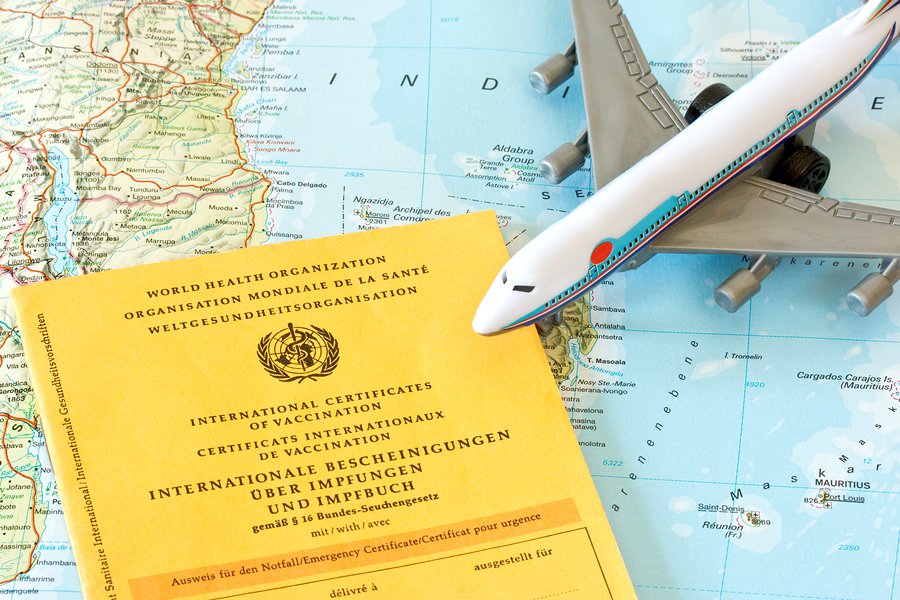Vaccinations for Travelling
If you’re planning on going abroad for your next adventure, you may need to be vaccinated to protect yourself against some serious illnesses found in other parts of the world.
Depending on your destination your vaccinations may be necessary or recommended. What you need depends on where you are going, where you’ll be staying, how long you’ll stay there and what time of year.
Some jabs will be covered under the NHS while others will need to be covered out of pocket; cholera, hepatitis A, typhoid, polio, tetanus and diphtheria are covered, while other common travel vaccinations like hepatitis B, rabies and meningitis C are not.
Vaccinations by destination
The NHS Fit For Travel website is the best place to find up-to-date and reliable information about recommended vaccinations and travel health advice for specific destinations you might be visiting.
Timing
Leaving yourself enough time to plan and schedule vaccinations is essential; many common jabs need to be done at least six weeks before you travel and will need to be ordered in advance. Other vaccinations – like rabies, for example – need to be administered over several visits in a certain period of time.
Going private or using a specialist travel clinic may make it easier to organise any vaccinations you need quicker and will have the most up-to-date information on disease outbreaks and new vaccines. Going private has its drawbacks, however – unless you already have private health cover, paying the cost of a course of vaccines could set you back up to £300 at a private clinic.
Take precautions
There are many vaccinations that are recommended rather than required, and it comes down to how much personal risk you are willing to take on. The best thing to do is plan your travels well in advance and set money aside for vaccinations as part of your travel budget.
Also consider what you’ll be doing while travelling; if you intend to stay within the confines of a luxury resort and spend a week or two relaxing by the pool, your exposure to risk will be lower than if you are trekking through the jungle or camping and visiting remote regions where food and water quality isn’t always assured.
Even if you have been vaccinated you aren’t entirely immune from contracting a disease – whatever you are doing you should be mindful of ways you can prevent illness from food, water, animals and insects. This means taking precautions; don’t interact with wild animals, avoid being bitten by mosquitos, drink bottled water where possible and only eat foods that have been cooked safely and thoroughly.
Consider travel insurance
Travel insurance offers an extra bit of protection in case your travel plans go awry; if you do fall ill while away or need emergency treatment, travel insurance will help cover or reimburse your costs. Look for a good travel insurance policy that will cover most eventualities and read the fine print carefully – there may be a clause about travel vaccinations or travelling in known outbreak regions.
If you have pre-existing medical conditions contact Free Spirit:
Call FREE on 0800 170 7704 quoting ‘Silver10’ (Mon to Fri 8am-6pm, closed Bank Holidays)
For an online quote with 10% off click here, or visit: Silversurfers Insurance

Free Spirit is a trading name of P J Hayman & Company Limited who are authorised and regulated by the Financial Conduct Authority (FS Register number 497103). Registered office: Stansted House, Rowlands Castle, Hampshire PO9 6DX. Registered in England No. 2534965. 110416.
Disclaimer
The contents of this article are for reference purposes only and do not constitute financial or legal advice. Independent financial or legal advice should be sought in relation to any specific matter. Articles are published by us without any knowledge or notice of the circumstances in which you or anyone else may use or rely on articles or any copy of the information, guidance or documents obtained from articles. We operate and publish articles without undertaking or accepting any duty of care or responsibility for articles or their contents, services or facilities. You undertake to rely on them entirely at your own risk, and without recourse to us. No assurance of the quality of articles is given or undertaken (whether as to accuracy, completeness, fitness for any purpose, conformance to any description or sample, or otherwise), or as to the timeliness of the publication.




















